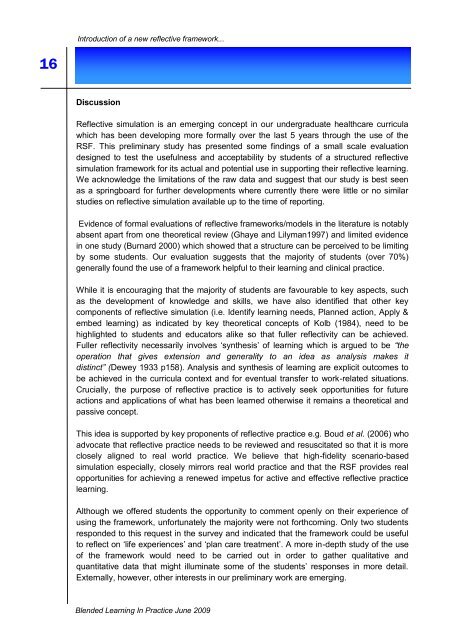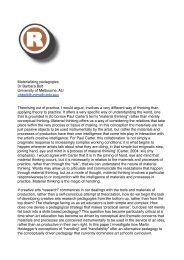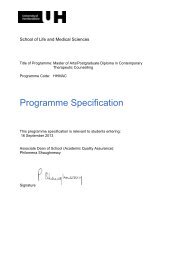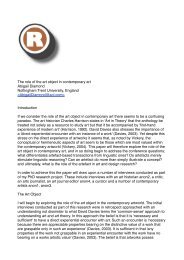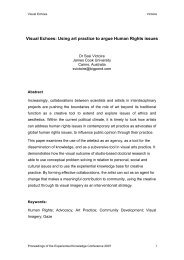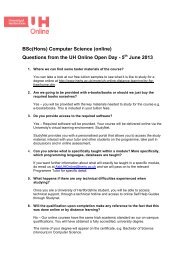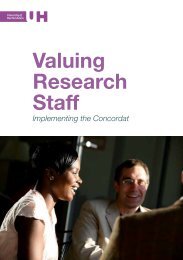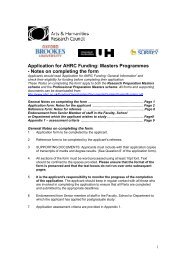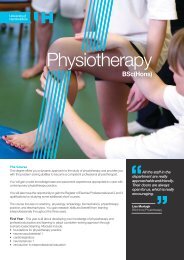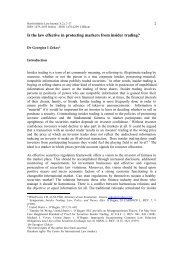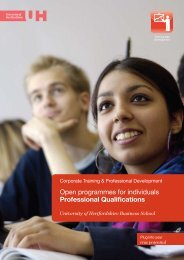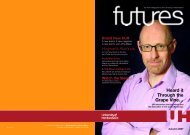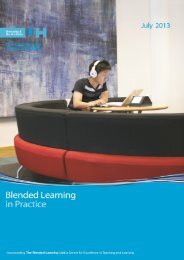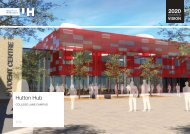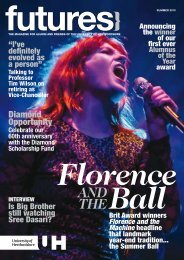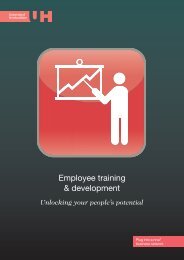June 2009 - University of Hertfordshire
June 2009 - University of Hertfordshire
June 2009 - University of Hertfordshire
You also want an ePaper? Increase the reach of your titles
YUMPU automatically turns print PDFs into web optimized ePapers that Google loves.
Introduction <strong>of</strong> a new reflective framework...<br />
16<br />
Discussion<br />
Reflective simulation is an emerging concept in our undergraduate healthcare curricula<br />
which has been developing more formally over the last 5 years through the use <strong>of</strong> the<br />
RSF. This preliminary study has presented some findings <strong>of</strong> a small scale evaluation<br />
designed to test the usefulness and acceptability by students <strong>of</strong> a structured reflective<br />
simulation framework for its actual and potential use in supporting their reflective learning.<br />
We acknowledge the limitations <strong>of</strong> the raw data and suggest that our study is best seen<br />
as a springboard for further developments where currently there were little or no similar<br />
studies on reflective simulation available up to the time <strong>of</strong> reporting.<br />
Evidence <strong>of</strong> formal evaluations <strong>of</strong> reflective frameworks/models in the literature is notably<br />
absent apart from one theoretical review (Ghaye and Lilyman1997) and limited evidence<br />
in one study (Burnard 2000) which showed that a structure can be perceived to be limiting<br />
by some students. Our evaluation suggests that the majority <strong>of</strong> students (over 70%)<br />
generally found the use <strong>of</strong> a framework helpful to their learning and clinical practice.<br />
While it is encouraging that the majority <strong>of</strong> students are favourable to key aspects, such<br />
as the development <strong>of</strong> knowledge and skills, we have also identified that other key<br />
components <strong>of</strong> reflective simulation (i.e. Identify learning needs, Planned action, Apply &<br />
embed learning) as indicated by key theoretical concepts <strong>of</strong> Kolb (1984), need to be<br />
highlighted to students and educators alike so that fuller reflectivity can be achieved.<br />
Fuller reflectivity necessarily involves „synthesis‟ <strong>of</strong> learning which is argued to be “the<br />
operation that gives extension and generality to an idea as analysis makes it<br />
distinct” (Dewey 1933 p158). Analysis and synthesis <strong>of</strong> learning are explicit outcomes to<br />
be achieved in the curricula context and for eventual transfer to work-related situations.<br />
Crucially, the purpose <strong>of</strong> reflective practice is to actively seek opportunities for future<br />
actions and applications <strong>of</strong> what has been learned otherwise it remains a theoretical and<br />
passive concept.<br />
This idea is supported by key proponents <strong>of</strong> reflective practice e.g. Boud et al. (2006) who<br />
advocate that reflective practice needs to be reviewed and resuscitated so that it is more<br />
closely aligned to real world practice. We believe that high-fidelity scenario-based<br />
simulation especially, closely mirrors real world practice and that the RSF provides real<br />
opportunities for achieving a renewed impetus for active and effective reflective practice<br />
learning.<br />
Although we <strong>of</strong>fered students the opportunity to comment openly on their experience <strong>of</strong><br />
using the framework, unfortunately the majority were not forthcoming. Only two students<br />
responded to this request in the survey and indicated that the framework could be useful<br />
to reflect on „life experiences‟ and „plan care treatment‟. A more in-depth study <strong>of</strong> the use<br />
<strong>of</strong> the framework would need to be carried out in order to gather qualitative and<br />
quantitative data that might illuminate some <strong>of</strong> the students‟ responses in more detail.<br />
Externally, however, other interests in our preliminary work are emerging.<br />
Blended Learning In Practice <strong>June</strong> <strong>2009</strong>


